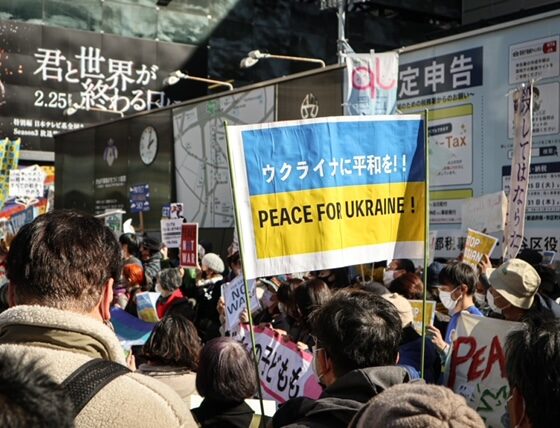![]()
Japan’s Ministry of Foreign Affairs released its annual Diplomatic Bluebook this past Friday, April 22, which highlighted the turning point in Japan’s policy on Russia in response to the invasion of Ukraine.
In past years, Japan tried to normalize relations with Russia not only for the return of the disputed Northern Territories (or the Kuril Islands) but to counter the rise of China and prevent a Sino-Russian alignment against Japan. However, in the new bluebook, the foreign ministry deleted last year’s reference to Japan’s “very important” ties to Russia and instead strongly criticized Russia’s recent actions in Ukraine. It also stated for the first time in 11 years that the Northern Territories are an “inherent” territory of Japan and for the first time in 19 years that they are “illegally occupied” by Russia.
Japan and Russia have not yet officially signed a peace treaty after World War II because of the dispute over the island chain. The Soviet Union, violating the Soviet-Japanese neutrality pact in effect until April 1946, declared war against Japan two days after the bombing of Hiroshima and continued to attack even after Japan accepted the Potsdam terms. The Soviets seized the islands of Etorofu (Iturup), Kunashiri (Kunashir), Shikotan, and Habomai after Japan’s unconditional surrender and deported all 17,000 Japanese residents by 1949. These islands had never been occupied by foreign states in the past; Japan discovered them long before Russia’s arrival to the region and established effective control by the early 19th century.
Prior to the invasion of Ukraine, Japan and Russia had agreed to resolve the territorial dispute and sign a peace treaty. In attempts to do so, Former Prime Minister Abe met with Putin 27 times during his second term between 2012 to 2020. Despite the 2014 annexation of Crimea, Japan provided approximately 20 billion yen (150 million USD) in economic aid over the past six years as part of Abe’s eight-point economic plan to improve relations with Russia. In 2018, Abe proposed a return of just two of the four islands, which only constitute 7% of the land area in question.
These efforts, however, were fruitless, and the invasion of Ukraine completely changed Japan’s strategy on Russia. Under Prime Minister Kishida, who served as Foreign Minister and Defense Minister during Abe’s negotiations with Russia, Japan has heavily sanctioned Russia. As a result, Russia has halted peace treaty negotiations, visa-free travel for Japanese citizens, and talks of joint business projects in the disputed territory.
Japan should continue to cooperate with the international community to pressure Russia in support of Ukraine and give up efforts to gain the “Russia card” which was never obtainable to begin with—at least with Vladimir Putin in power. As a leader in the region, Japan must stand strong for human rights and the rule of law. Attempts to negotiate with Putin will only damage Japan’s reputation and set a bad precedent for a potential Chinese invasion of Taiwan in the coming decade.












